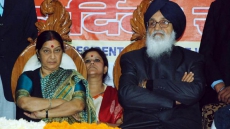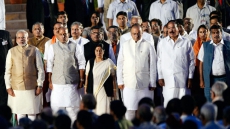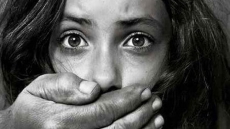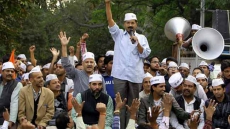The recent killing of two people, including a teenager, by soldiers of the Indian Army has renewed calls for the revocation of the law that gives special powers to the armed forces in the insurgency-hit Jammu and Kashmir.
The man on the street views the incident, for which the army has issued an unusual apology, as a manifestation of the controversial Armed Forces Special Powers Act (AFSPA) that gives sweeping powers to the armed forces in the state that is inching towards peace after decades of Pakistan-sponsored proxy war.
But the apology has done little to defuse the anger among the people in the Kashmir Valley over the killings, particularly in Nowgam area in Srinagar peripheries where the two belonged to.
Faisal Bhat, 14, and Mehrajuddin Dar, 21, were killed early this month when soldiers of the counter-insurgency 53 Rashtriya Rifles opened fire at the car in which they were travelling in Chattergam village, some 20 km from Srinagar. Two of their friends, Shaker Bhat and Zahid Naqash who were also in the car, were injured in the shooting, described by the army as "mistaken identity" in their chase for "terrorists".
Crowds in the Nowgam area have been holding protests, albeit peacefully, barring a couple of incidents of stone pelting over the weekend. They want the government to punish the "guilty" soldiers.
And to stop such incidents from recurring, they said, the dreaded AFSPA in place since 1990s, should go. Showkat Ahmad, 38, a businessman in Srinagar, said the incident in not a "one-off".
"There is nothing new in it. This has been going on from years and will continue to happen in the future if the special powers the army enjoys are not revoked," Ahmad told IANS.
Shabir Ahmad, 23, a young journalist who has been reporting the conflict for the last couple of years, said that probes into past civilian killings allegedly by the Indian Army are yet to be completed and the "recent case will only add to the lot".
"No doubt the army has admitted the wrongdoing. But history has a long list of probes still pending. I doubt that the justice can be done," said Shabir.
Qazi Mudasir, 25, a social activist from Srinagar, said that by official admission of the state and central governments, the circumstances that forced the implementation of the draconian law no longer exist in the Muslim-majority state of some 10.25 million people.
The state government took the army's help after police and paramilitary forces failed to curb the reign of terror unleashed by Pakistani and Pakistan-trained militants, including foreign mercenaries, who were growing in numbers and strength.
But the governments have admitted that the situation is no longer that dangerous and militants are present few in numbers, and that too scattered around in rural or forested areas.
Mudasir, like many others whom IANS spoke with, was of the view that military presence has to be reduced in areas insurgency has been eliminated, including in cities and towns. "Until there is the presence of army here, such incidents will continue to happen," said the social activist.
But the army, which has announced Rs.10 lakh compensation to the kin of each of the deceased and Rs.5 lakh each for the injured, says that the AFSPA has nothing to do with the killing of the two people in the recent incident.




